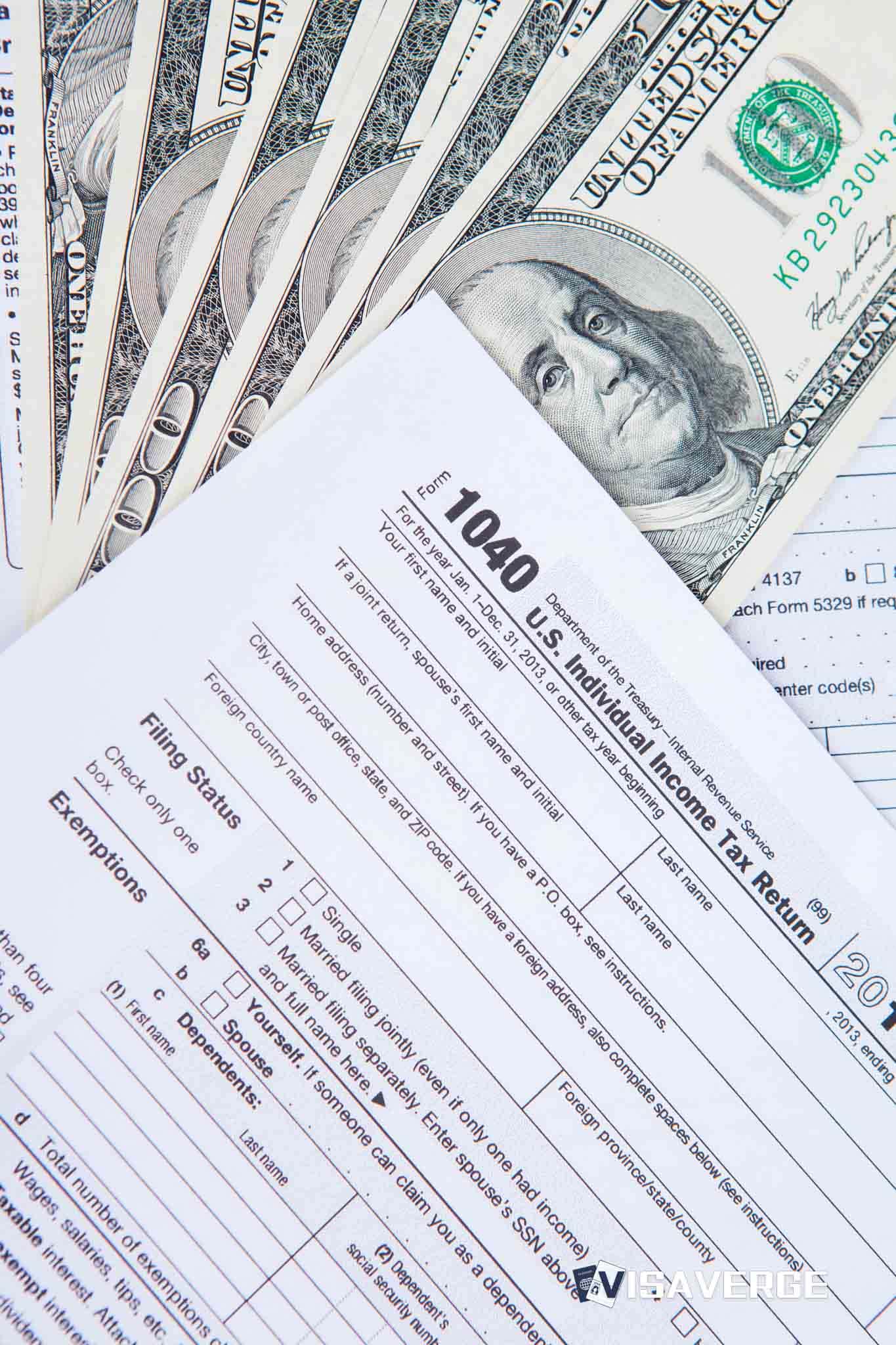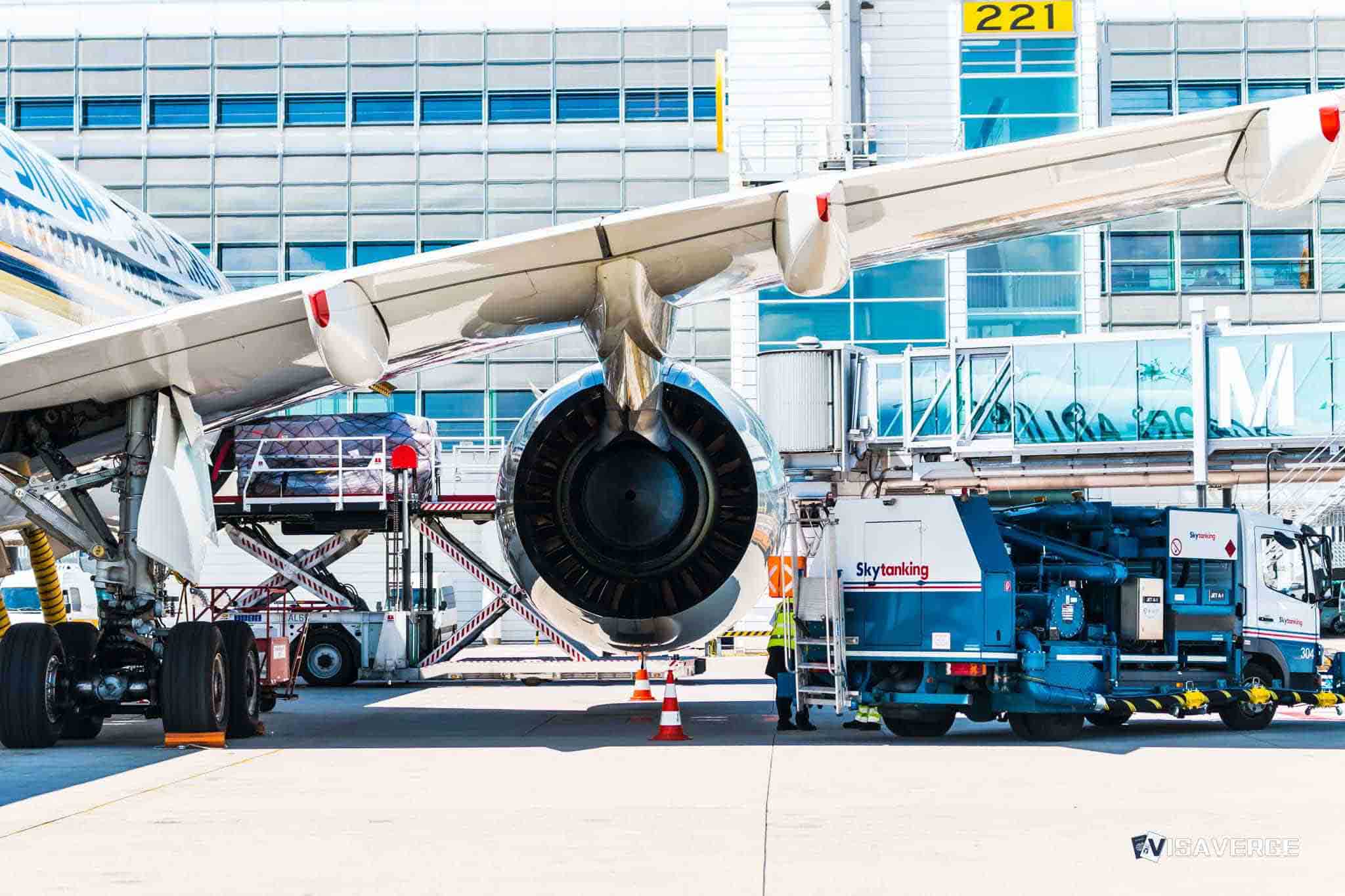Understanding the Tax Treaty Benefit for F1 Visa Students
International students in the United States often grapple with the complexities of the tax system, especially those on an F1 visa. With the opportunity to receive benefits under tax treaties between the U.S. and certain countries, it’s crucial for these students to understand the implications of such benefits.
What is a Tax Treaty Benefit?
A tax treaty is an agreement between two countries that outlines how residents of one country are taxed on income earned in the other country. The U.S. has tax treaties with multiple countries, some of which provide specific provisions for students and scholars. F1 visa students may be entitled to a ‘tax treaty benefit’, which often translates to a reduced rate of tax or, in some cases, exemption from U.S. tax on certain types of income.
Eligibility for Tax Treaty Benefits
Not every F1 student is automatically eligible for this benefit. To qualify, one must be a resident of a country that has a tax treaty with the U.S. that includes provisions for students. The type of income typically covered includes:
- Compensation during practical training
- Grants or awards
- Certain types of scholarship and fellowship income

Students should check the specific treaty relevant to their country to determine what income types are covered and the conditions for the exemption or rate reduction.
How to Claim the Tax Treaty Benefit
To claim the tax treaty benefit, F1 students must follow these general steps:
- Determine Eligibility: Review the treaty between your country and the U.S. to confirm eligibility.
- Submit the Appropriate Forms: Generally, Form 8833 must be submitted along with your annual tax return if you are claiming a treaty benefit. For employment income, Form 8233 may need to be filed to exempt certain wages from withholding.
- Understand the Time Limit: Some treaties specify how many years the benefit applies. Be aware of this so you don’t erroneously claim the benefit.
For accurate procedures and forms, always refer to the IRS website or consult with a tax professional.
Implications of the Tax Treaty Benefit
The implications of receiving a tax treaty benefit range from immediate financial relief to long-term tax planning. Firstly, F1 students may see:
- Reduced Withholding on Paychecks: For those working on-campus or in approved off-campus positions, less tax may be taken out of your pay.
- Potential Refunds: If you have had taxes withheld in error, claiming the treaty benefit can result in a refund when you file your tax return.
- Compliance Requirements: Even if you benefit from a treaty, you must still file an annual tax return and report all income, whether it’s taxable or not.
Long-Term Considerations
For F1 visa students planning to stay in the U.S. after completing their studies, understanding how the tax treaty benefit applies is just as crucial. Should your visa status change, for example, to an H1B work visa, the treaty benefits previously available to you as a student may no longer apply. It is important to plan for such eventualities and align your tax obligations accordingly.
Important to Remember
Here’s a crucial quote to consider:
“Tax treaties are designed to provide relief from double taxation and simplify tax issues for international students, but navigating the details often calls for diligence and sometimes professional guidance.”
Always ensure that claiming a tax treaty benefit is done correctly; it is not just about reducing your tax bill today but also maintaining compliance with IRS regulations.
Remember, tax laws and treaties are subject to revision and changes. Stay informed about any updates to tax treaties between your home country and the U.S. You can keep abreast of changes via the IRS or educational institution resources.
Tax Treaty Benefit: A Valuable Aspect of F1 Visa Tax Implications
By being aware of the tax treaty benefit F1 and the implications that come with it, international students can significantly reduce their tax burden and maintain compliance with U.S. tax laws. If you’re unsure about any aspect of your eligibility or how to claim these benefits, don’t hesitate to seek professional tax advice.
Navigating the U.S. tax system can be overwhelming, but understanding the provision of tax treaty benefits ensures that you are not paying more tax than necessary. With the right information and support, F1 visa students can successfully manage their financial and tax responsibilities while studying in the United States.
Still Got Questions? Read Below to Know More:
Are there any other tax breaks for F1 students besides the tax treaty benefit I should know about if I receive a scholarship
Yes, as an F1 student in the United States, there are additional tax considerations you should be aware of, aside from the tax treaty benefits. However, it’s important to note tax situations can be complex and it’s always advisable to consult with a tax professional or refer to official sources for guidance. Here’s a simple breakdown of potential tax breaks:
- Standard Deduction: Normally, nonresident aliens cannot claim the standard deduction on their tax returns. However, students from India are an exception, due to the US-India tax treaty, allowing them to enjoy the standard deduction.
- Earned Income: If you’ve worked on-campus or participated in optional practical training (OPT) or curricular practical training (CPT), you might be entitled to certain tax credits for earned income, but typically, F1 students as nonresidents are not eligible for the Earned Income Tax Credit.
- State Tax Refunds: If you paid state taxes last year and received a refund, that amount might be taxable on your federal tax return.
Before claiming any deductions or tax credits, be sure you understand your residency status as it can change if you’ve been in the U.S. for a substantial amount of time; this could affect your eligibility for different tax benefits. For scholarly or fellowship grants, parts of it that are used for tuition and course-related expenses are not taxable, but portions used for room and board are.
The Internal Revenue Service (IRS) Publication 970, ‘Tax Benefits for Education,’ offers in-depth information on tax benefits that may be available to students. Also, the IRS’s Interactive Tax Assistant can guide you through the tax implications of your scholarship. Both resources can be found on the official IRS website: IRS Publication 970 and IRS Interactive Tax Assistant.
Always double-check the IRS guidelines or speak to a tax advisor to understand which tax benefits apply to your specific situation. Additionally, make sure to regularly check the official IRS website for any updates to tax laws that may affect you.
What kind of records do I need to keep to prove my eligibility for a tax treaty benefit when I’m an F1 student working part-time
If you’re an F1 student working part-time in the United States, you may be eligible for tax treaty benefits that can reduce the amount of taxes you owe. To prove your eligibility, you should maintain clear and accurate records throughout the year. Here are the types of records you should keep:
- Proof of Residency in Home Country: Retain documents that establish your residence in the country with which the U.S. has the tax treaty. This could include your foreign address, bank statements, or government documentation.
- Copy of Your Visa and Immigration Status: You should keep a copy of your F1 visa and I-20 form which shows that you are a legitimate student in the U.S.
-
Proof of Employment and Income: This includes W-2 forms, pay stubs, and if applicable, Form 1042-S which reports income covered by the tax treaty.
-
Correspondence with the IRS: If you have informed the IRS of your tax treaty position through a tax return or a Form 8833, keep a copy of this communication for your records.
-
Tax Treaty Text: Have a copy or reference link to the relevant tax treaty provision that you are applying for. You can find the complete text of each tax treaty on the IRS website here.
Remember to keep these records for at least three years from the date you filed the income tax return. You can also refer to the official IRS page regarding tax treaties for more detailed information IRS Tax Treaties.
The IRS provides a comprehensive guide for foreign students and scholars who must navigate U.S. tax regulations, including eligibility for tax treaty benefits, which you can access here. It’s always a good idea to consult with a tax professional or use the resources provided by your institution’s international students office if you’re unsure about your tax obligations or entitlements.
How would an F1 student’s taxes change if they got married to a U.S. citizen – can they still use the tax treaty benefit
If an F1 student gets married to a U.S. citizen, their tax filing status changes, as they now have the option to file taxes jointly with their spouse. This can have several implications:
- Standard Deduction: If they choose to file jointly, they may benefit from a higher standard deduction, potentially reducing their taxable income.
- Tax Brackets: Their income will be subject to different tax brackets, which could lead to either lower or higher taxes, depending on their combined income.
- Earned Income Tax Credit (EITC) and Other Credits: They may also become eligible for tax credits such as the EITC, which they would not qualify for as a nonresident alien student.
It is important to note that tax treaties can vary by country, with specific provisions for students and scholars. If there is a tax treaty between the U.S. and the student’s home country, it often allows them to exclude certain types of income from U.S. taxation. The benefit of tax treaties can still be used after marriage, but it’s crucial to consider the residency status:
- Nonresident Alien: If an F1 student is considered a nonresident alien for tax purposes, they can generally use the tax treaty benefit as outlined by the IRS. They would need to file Form 1040-NR (U.S. Nonresident Alien Income Tax Return) and the proper treaty exemption forms.
- Resident Alien: If they choose to be treated as a resident alien for tax purposes by electing to file jointly with their U.S. citizen spouse, they may not be eligible for the same benefits under the tax treaty. Instead, they would file a regular Form 1040 (U.S. Individual Income Tax Return) and claim benefits that apply to residents. However, some treaties may have provisions for residents, so it’s important to consult the specific treaty.
For more information on tax treaties and how to claim treaty benefits, refer to the IRS Publication 901 (U.S. Tax Treaties) and the instructions for Form 1040-NR, which are authoritative sources for tax-related information. Additionally, the IRS addresses questions regarding taxes and nonresident aliens on their website. Always consult with a tax professional or the IRS directly for personal tax advice.
- IRS Publication 901: U.S. Tax Treaties
- IRS Form 1040-NR Instructions: Instructions for Form 1040-NR
Can an F1 student from a country without a tax treaty still find ways to lower their tax bill in the U.S
Yes, even if an F1 student comes from a country without a tax treaty with the U.S., there are still ways to potentially lower their tax bill. Here are some steps that can be taken:
- Standard Deduction: As of the 2020 tax year, F1 students can’t claim the standard deduction unless they’re from India due to a specific provision in the U.S.-India tax treaty. However, it’s worth checking the latest tax rules each year to see if this has been updated.
- Itemized Deductions: Students may qualify for itemized deductions. These can include state and local income taxes paid, unreimbursed medical expenses, and charitable contributions.
-
Education Credits: F1 students might be eligible for education-related tax credits like the American Opportunity Credit or the Lifetime Learning Credit. These credits can provide a dollar-for-dollar reduction of tax liability for qualified educational expenses.
It’s important to keep all receipts and financial records related to educational expenses, as they can be crucial when claiming credits or deductions. Additionally, resources such as the Internal Revenue Service (IRS) website provide extensive guidance. The IRS’s page for International Taxpayers (https://www.irs.gov/individuals/international-taxpayers) is a valuable source of information on tax issues for non-residents.
Lastly, while F1 students aren’t typically required to pay FICA taxes (Social Security and Medicare) while on OPT or CPT, it’d be wise to ensure that no such taxes are being incorrectly withheld by employers. If they are, students may file for a refund. The Social Security Administration provides guidance on noncitizen work situations (https://www.ssa.gov/pubs/EN-05-10096.pdf). To ensure compliance and the best approach to taxation, it may be beneficial for an F1 student to consult with a tax professional specializing in non-resident tax issues.
If my friend on an F1 visa didn’t claim their tax treaty benefit last year, is there a way to get that money back
If your friend on an F1 visa did not claim their tax treaty benefit last year, they might still be able to get that money back by filing an amended tax return using Form 1040-X. Here is the process:
- Check Eligibility: Confirm that your friend is eligible to claim the tax treaty benefit based on their country of origin and the specific tax treaty the U.S. has with that country. Make sure they meet the criteria for the year in question.
- Gather Documentation: Your friend should collect any required documentation that supports their eligibility for the tax treaty benefit. This may include their Form 1040NR or 1040NR-EZ previously filed, tax treaty documents, Form 8233 (if they had exemption from withholding), and any other relevant forms or receipts.
-
File Form 1040-X: Complete and file Form 1040-X, “Amended U.S. Individual Income Tax Return,” within the IRS’s amendment period, typically within three years from the date the original return was filed, or within two years from the date the tax was paid, whichever is later.
Here’s a statement from the IRS:
“Use Form 1040-X to correct a previously filed Form 1040NR or Form 1040NR-EZ.”
Remember, the 1040-X form should be filed by mail as it cannot be e-filed. Your friend will also need to attach a revised Form 1040NR or 1040NR-EZ for the year they are correcting and explain why they are making an amendment.
For more specific guidance related to the tax treaties and filing an amended tax return, your friend can refer to the following resources:
– IRS Publication 901, “U.S. Tax Treaties,” to determine eligibility: IRS Publication 901
– IRS instructions for Form 1040-X: Form 1040-X Instructions
Make sure your friend follows the exact instructions and includes all required documentation to prevent delays or issues with the IRS processing the amended return. If your friend feels uncertain about the process, they may want to consult a tax professional with experience in nonresident tax matters.
Learn today
Glossary of Tax Terms
1. Tax Treaty Benefit: A tax treaty benefit refers to the privileges and advantages afforded to individuals resident in one country who earn income in another country with which their home country has a tax treaty. These benefits can include reduced tax rates or exemption from certain types of taxation.
2. Tax Treaty: A tax treaty is an agreement between two countries that establishes rules for the taxation of individuals or entities that have connections to both countries. These treaties prevent double taxation and provide guidelines for the allocation of taxing rights.
3. F1 Visa: The F1 visa is a non-immigrant visa issued to international students who wish to pursue academic studies or engage in language training programs in the United States. It allows them to stay in the country for the duration of their studies.
4. Resident: A resident, in the context of tax treaties, refers to an individual who is considered a tax resident of a particular country based on that country’s tax laws. A taxpayer’s residency status determines their eligibility for tax benefits and obligations under tax treaties.
5. Treaty Eligibility: Treaty eligibility refers to the criteria a taxpayer must meet to qualify for tax treaty benefits. This includes being a resident of a country that has a tax treaty with the United States and meeting any specific conditions outlined in the treaty itself, such as being a student or scholar.
6. Income Types Covered: Income types covered under a tax treaty are the specific types of income that may be eligible for treaty benefits. For F1 visa students, common income types covered include compensation during practical training, grants or awards, and certain types of scholarship and fellowship income.
7. Form 8833: Form 8833 is a form used to disclose treaty-based positions to the IRS. F1 students claiming a tax treaty benefit are required to file this form along with their annual tax return. It provides information on the specific provisions of the tax treaty being relied upon.
8. Withholding: Withholding refers to the amount of tax deducted from an individual’s income at the source by an employer or other payer. Withholding is typically based on a predetermined rate established by tax laws or treaties.
9. Compliance Requirements: Compliance requirements refer to the obligations and duties that taxpayers must fulfill to comply with tax laws and regulations. Even if an F1 student benefits from a tax treaty, they are still required to file an annual tax return and report all income, whether taxable or not.
10. H1B Visa: The H1B visa is a non-immigrant visa that allows U.S. employers to temporarily employ foreign workers in specialized occupations. For F1 students who transition to an H1B work visa, the tax treaty benefits they enjoyed as students may no longer apply.
11. Double Taxation: Double taxation occurs when the same income is subject to taxation in two different jurisdictions. Tax treaties aim to prevent double taxation by allocating taxing rights and providing relief through provisions such as reduced tax rates or exemptions.
12. IRS: The Internal Revenue Service (IRS) is the U.S. government agency responsible for administering and enforcing the federal tax laws. The IRS provides guidance, resources, and forms related to taxes and tax treaty benefits on its website.
13. Refund: A refund is the return of excess tax paid by a taxpayer to the government. In the context of claiming a tax treaty benefit, F1 students who have had taxes withheld in error may be eligible for a refund when they file their tax return.
14. Tax Planning: Tax planning involves the strategic management of a taxpayer’s financial affairs to minimize their tax liability. For F1 students, understanding the implications of tax treaty benefits can be a crucial aspect of long-term tax planning, especially if they plan to stay in the U.S. after completing their studies.
15. Professional Tax Advice: Professional tax advice refers to guidance and assistance provided by certified tax professionals, such as tax attorneys or certified public accountants (CPAs), who specialize in tax matters. Seeking professional tax advice can help F1 students navigate the complexities of tax treaty benefits and ensure compliance with IRS regulations.
So, there you have it! Understanding the tax treaty benefit for F1 visa students can save you time, money, and headaches. Remember to check if your country has a tax treaty with the U.S., submit the appropriate forms, and stay informed about any changes. For more tips and information on visas, taxes, and everything in between, head over to visaverge.com. Happy exploring!









